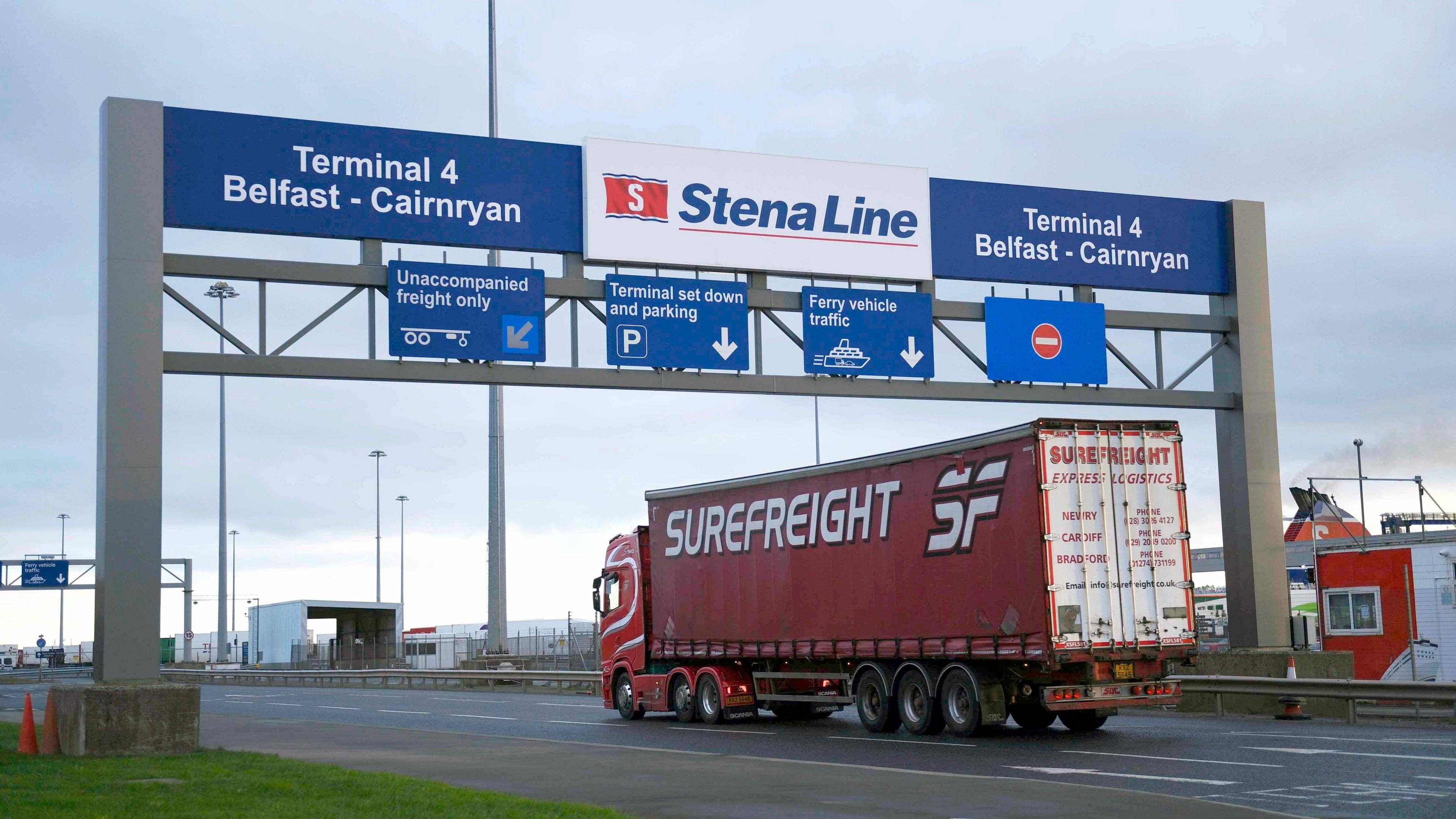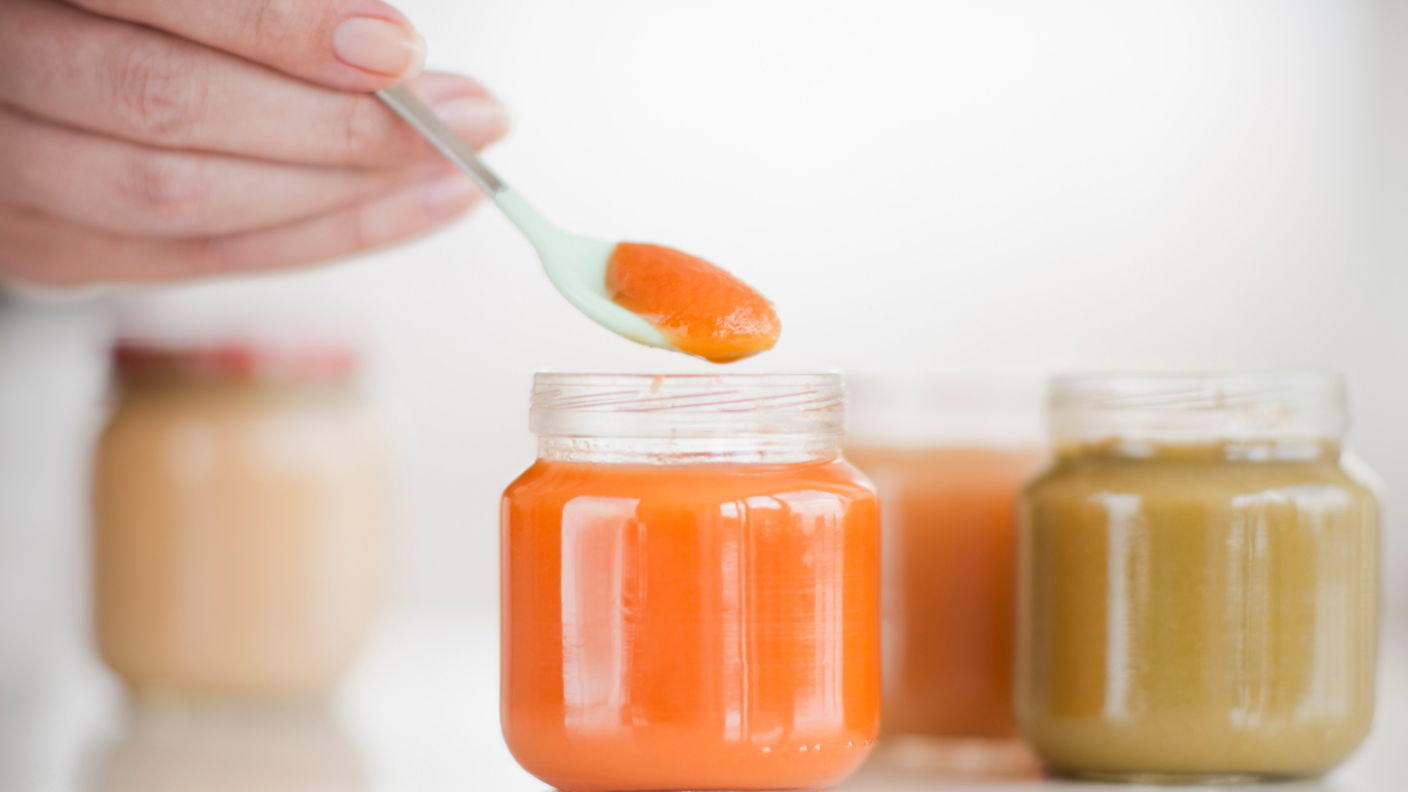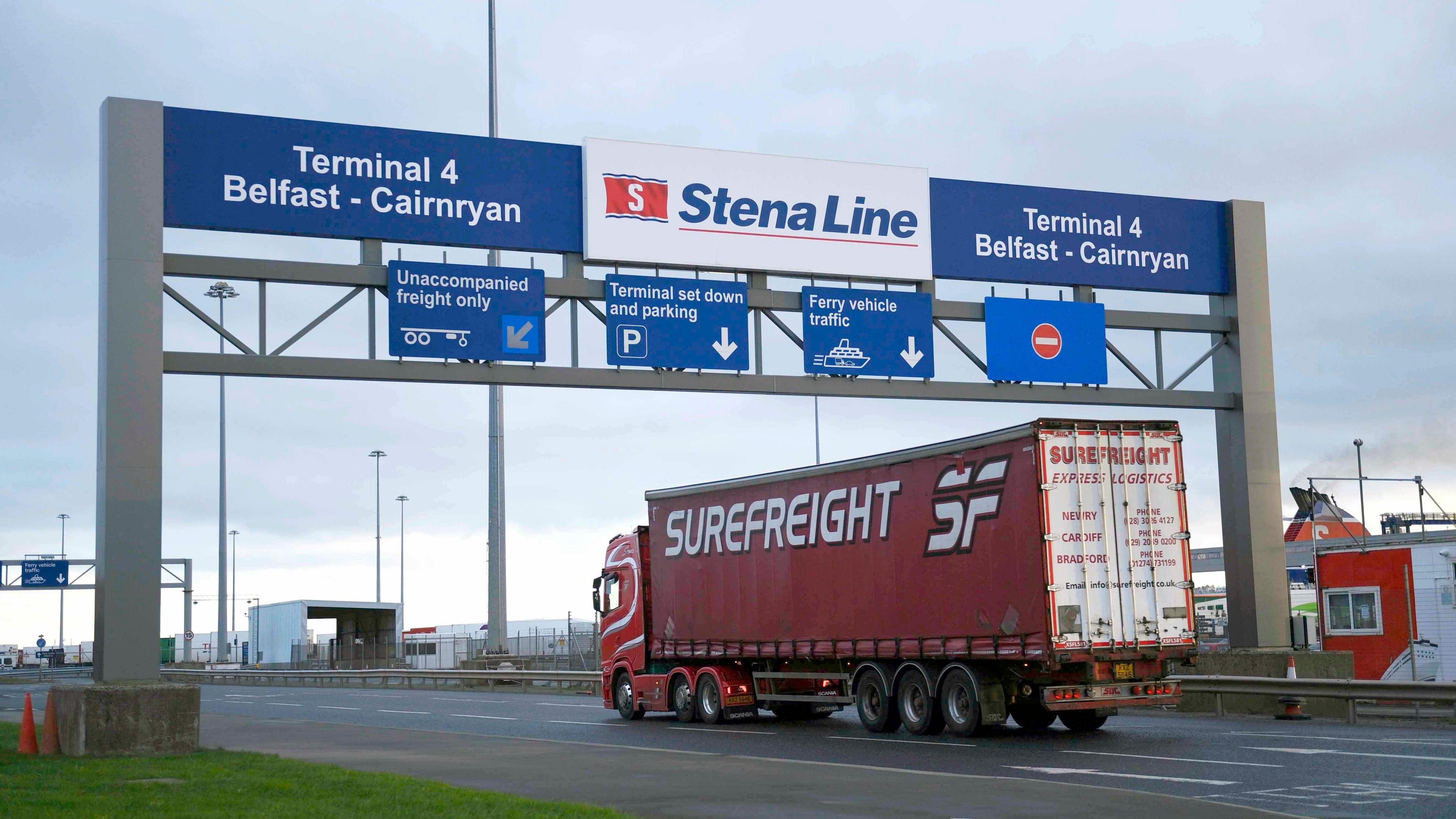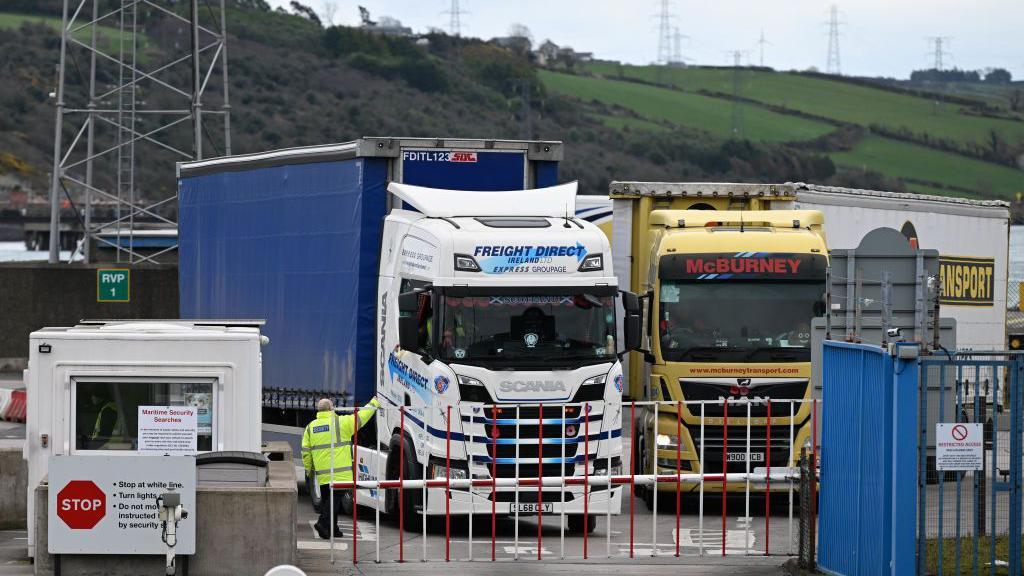Stormont brake move may indicate Westminster approach to EU rules

The Windsor Framework effectively keeps Northern Ireland inside the EU single market for goods
- Published
The government's rationale for not pulling the brake on the issue of chemical labelling gives us an idea of how it intends to deal with the wider risk of GB-NI rules divergence.
To recap: Northern Ireland is still inside the EU's single market for goods, the rest of the UK is not.
That creates the Irish Sea border, a range of rules and processes required to send goods from Great Britain to Northern Ireland.
Over time, as the EU and the UK each update their rulebooks, the operation of the sea border is likely to become more complicated.

In 2023, the EU announced it was planning to have stricter rules than the UK on chemical residues in babyfood
One way to prevent complication is simply for the UK as a whole to align with the EU rules that apply in Northern Ireland.
The government's statement on Monday, suggests that is what will happen, either in practice or in law.
Part of the government's response was effectively to say: "The Brussels Effect means most Great Britain companies will just adopt the EU labelling standard so they can continue to sell into that market. So in practice GB-NI issues won't arise."
The Brussels Effect refers to the practice of non-EU companies producing to EU standards, reflecting the size of the EU market and the relative strictness of its product rules.
The idea being that if you produce to EU standards, your product is likely to meet the requirements of not just the EU but any jurisdiction.
Its impact was seen in 2023, when the EU announced it was planning to have stricter rules than the UK on chemical residues in baby food.
The trade association for UK baby food said it would continue to manufacture to EU standards.
Benn defends decision not to pull Stormont brake
- Published20 January
Former NI Secretary to lead post-Brexit arrangement review
- Published9 January
NI medicine regulation returns to UK under Windsor Framework
- Published1 January
'Consistent regime'
Another part of the government's response is to suggest that if necessary it will choose to match EU standards in law.
This is couched as a consultation on "applying a consistent regime across the United Kingdom, should this be required to safeguard the UK internal market".
If the plan is to be consistent with the rules as they apply in Northern Ireland that will mean matching EU legislation as those rules are set by Brussels, not Stormont.
There is law already in the works to make it easier for ministers to impose this "consistent regime".
The Product Regulation and Metrology Bill is currently making its way through the House of Lords.
Government guidance on the bill says: "EU changes to product regulation only apply in Northern Ireland, resulting in divergence within the UK internal market as EU laws are updated."
It adds: "This bill gives the government specific powers to make changes to GB legislation to manage divergence and take a UK-wide approach."
The law is opposed by some Brexit supporters, with the former Brexit minister Lord Frost saying it amounts to using Northern Ireland "to keep this whole country in line with EU rules in certain areas".
Related topics
- Published11 December 2024

- Published10 December 2024

- Published9 December 2024
